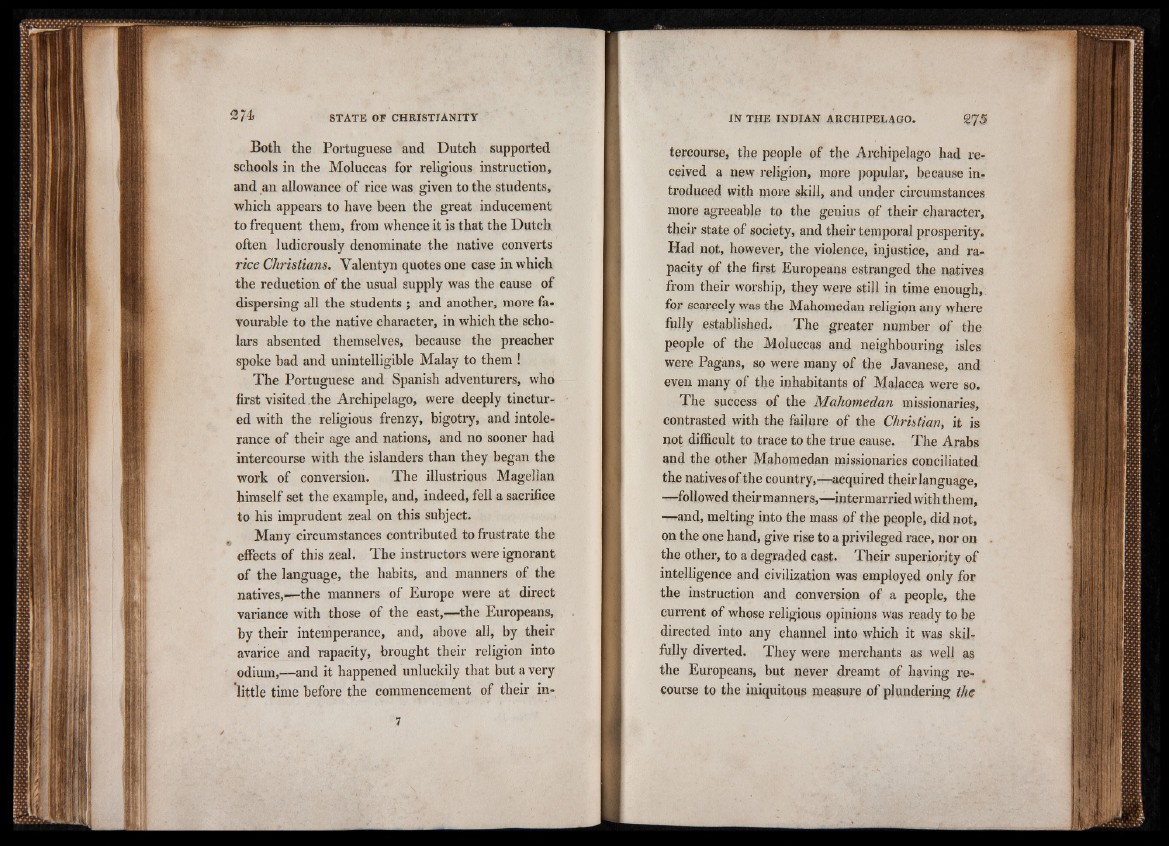
Both the Portuguese and Dutch supported
schools in the Moluccas for religious instruction,
and an allowance of rice was given to the students,
which appears to have been the great inducement
to frequent them, from whence it is that the Dutch
often ludicrously denominate the native converts
rice Christians. Valentyn quotes one case in which
the reduction of the usual supply was the cause of
dispersing all the students ; and another, more favourable
to the native character, in which the scholars
absented themselves, because the preacher
spoke bad and unintelligible Malay to them !
The Portuguese and Spanish adventurers, who
first visited,the Archipelago, were deeply tinctured
with the religious frenzy, bigotry, and intolerance
of their age and nations, and no sooner had
intercourse with the islanders than they began the
work of conversion. The illustrious Magellan
himself set the example, and, indeed, fell a sacrifice
to his imprudent zeal on this subject,
Many circumstances contributed to frustrate the
effects of this zeal. The instructors were ignorant
of the language, the habits, and manners of the
natives,-—the manners of Europe were at direct
variance with those of the east,—the Europeans,
by their intemperance, and, above all, by their
avarice and rapacity, brought their religion into
odium,—and it happened unluckily that but a very
little time before the commencement of their intercourse,
the people of the Archipelago had received
a new religion, mpre popular, because introduced
with more skill, and under circumstances
more agreeable to the genius of their character,
their state of society, and their temporal prosperity.
Had not, however, the violence, injustice, and rapacity
of the first Europeans estranged the natives
from their worship, they were still in time enough,
for scarcely was the Mahomedan religion any where
fully established. The greater number of the
people of the Moluccas and neighbouring isles
were Pagans, so were many of the Javanese, and
even many of the inhabitants of Malacca were so.
The success of the Mahomedan missionaries,
contrasted with the failure of the Christian, it is
not difficult to trace to the true cause. The Arabs
and the other Mahomedan missionaries conciliated
the natives of the country,—acquired their language,
—followed their manners,—intermarried with them,
—and, melting into the mass of the people, did not,
on the one hand, give rise to a privileged race, nor on
the other, to a degraded cast. Their superiority of
intelligence and civilization was employed only for
the instruction and conversion of a people, the
current of whose religious opinions was ready to be
directed into any channel into which it was skilfully
diverted. They were merchants as well as
the Europeans, but never dreamt of having recourse
to the iniquitous measure of plundering the